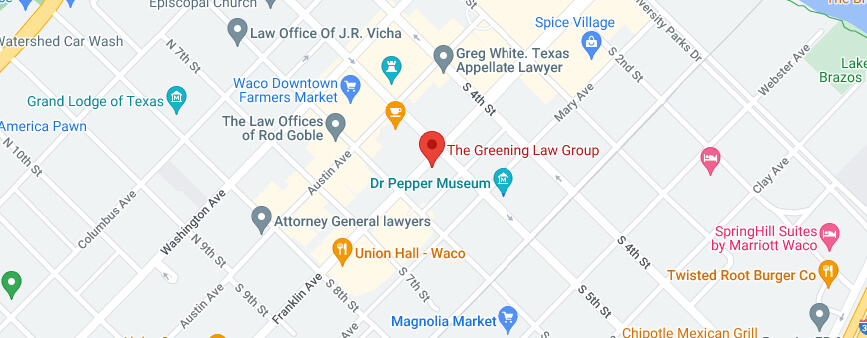How Severe is a First-Time Drug Possession Charge in Texas?
The legal system can be very harsh on repeat offenders, but this does not mean that first-time offenders will be treated with leniency. A first-time drug possession charge in Texas may still result in hefty fines and jail time. Understanding the repercussions of your charges and what may be at stake is critical. A knowledgeable drug possession defense lawyer can explain the state’s laws and help you fight back against the serious consequences that may come from a possession conviction
What is Possession of a Drug?
Section 481.002 of the Texas Controlled Substances Act defines possession of a drug as “actual care, custody, control, or management” of the substance. While this certainly covers illegal substances found on your person, it can also include drugs found in your vehicle, home, or belongings. However, the prosecution must prove that you knowingly and intentionally possessed the substances.
What Factors Impact the Severity of Your Charges?
Charges for first-time drug possession can range from a class-B misdemeanor to a first-degree felony, depending on the details of your case. The main factors that will influence your charges and sentencing include the following:
The Type of Substance
Texas drug charges are split into four penalty groups based on the type of drug found in your possession. Charges for lower-numbered groups are more severe because the drugs are considered more dangerous or addictive.
While every penalty group covers many substances, common examples from each group include the following:
- Penalty group 1, 1A: Heroin, cocaine, morphine, ketamine, and some opiates.
- Penalty group 2, 2A: PCP, ecstasy, synthetic cannabis, and psychedelic mushrooms.
- Penalty Group 3: Certain prescription drugs, such as Ritalin, Ativan, and Tramadol; anabolic steroids.
- Penalty Group 4: Other prescription drugs not listed elsewhere with potential for abuse and addiction.
Although some states have recently decriminalized marijuana, Texas still considers it illegal to possess without a valid prescription. Marijuana possession falls under its own penalty category with separate punishments. Having any drug paraphernalia, such as pipes or grinders, is also a crime, even if you possess no illegal substances.
How Much of the Drug You Possessed
During your arrest, law enforcement will measure the weight of the illegal substance. In the Texas statutes, each penalty group has consequences based on the quantity of drugs found. The penalties increase in tandem with the amount. For example, if you possessed less than a gram of a penalty group 2 substance, you would be charged with a state jail felony. However, if you had between four and 400 grams of a penalty group 2 drug, the charge would jump to a second-degree felony.
How You Intended to Use the Drug
The penalties for possession increase if you were involved in manufacturing, selling, or delivering the illegal substance. In general, having a small quantity of drugs for personal use will result in less severe penalties than possessing large amounts of illicit drugs you could distribute to others. Possessing over 400 grams of certain substances can result in life imprisonment, even for a first-time offense.
Where You Possessed the Drug
To protect the well-being of children, Texas designates schools and all areas within 1000 feet of a school as drug-free zones. If you are found to possess drugs in one of these areas, your charges will be increased by one degree.
What Consequences Can You Face For a First-Time Drug Possession Charge?
Texas considers drug use a threat to public health and takes drug possession seriously. Even if you do not have a prior criminal record, you could be ordered to pay a large fine and/or serve significant jail time for drug possession.
Possible charges and the punishments you could face if convicted are:
- Class B misdemeanor: Up to 180 days in jail and a $2,000 fine.
- Class A misdemeanor: Up to a year in jail and a $4,000 fine.
- State jail felony: Minimum of at least 180 days, or up to two years in state jail, and a fine of up to $10,000.
- Third-degree felony: Two to ten years in prison and a maximum fine of $10,000.
- Second-degree felony: Two to 20 years in prison and a maximum fine of $10,000.
- First-degree felony: Mandatory minimum of at least five years of prison time. Could face up to 99 years or life in prison and a fine of up to $10,000.
In addition to criminal penalties, you could see major impacts on your life due to your charges. A drug possession conviction will go on your criminal record and appear on employers’ background checks, potentially making it difficult to get employment. If you are convicted of a felony, you could lose your right to vote and your eligibility for housing programs and college funding. A social stigma can also be attached to drug convictions that can impact your opportunities for relationships and career advancement.
Is It Possible to Get Your First-Time Drug Charges Dropped or Reduced?
First-time drug possession charges can turn your life upside down. However, with the help of a dedicated legal team, you may be able to get your charges reduced or even dropped. It’s critical to act quickly to give yourself the best chance of avoiding life-altering consequences.
Possible defenses and legal strategies your defense lawyer may use include:
- Introducing doubt about your possession of the drugs: If you did not knowingly or intentionally possess the substance, the charges could be dismissed.
- Questioning the legality of the search: If the police did not have probable cause to search your person or belongings, the search may be invalid.
- Showing that you possessed the drugs legally: The charges should be dropped if you have a valid prescription for the substance.
- Seeking a reduction in charges: Your lawyer may be able to obtain a reduction to a misdemeanor through a plea bargain with the prosecution.
- Getting a pre-trial diversion: First-time drug offenders may be eligible to enter into a program that could result in the dismissal of charges. However, you must be accepted into the program and successfully complete all requirements within the given timeframe.
How Can an Experienced Criminal Defense Lawyer Assist You?
Texas’ drug possession laws are complex, and your charges can vary based on the circumstances of your arrest. No matter the situation, you should not take a first-time drug possession charge lightly. A conviction could result in a permanent mark on your criminal record, along with penalties that could negatively impact your future. Our skilled criminal defense lawyers at The Greening Law Group have a proven track record of successfully defending clients against drug possession charges. Contact our College Station law firm today at 979-779-2000 to schedule a free consultation to discuss your legal options.












